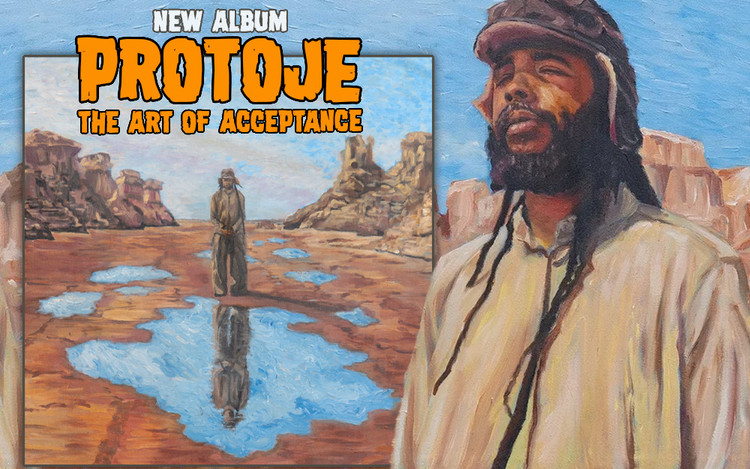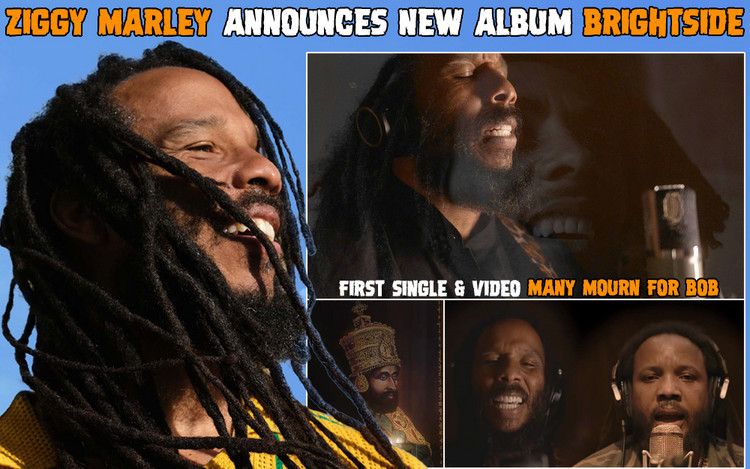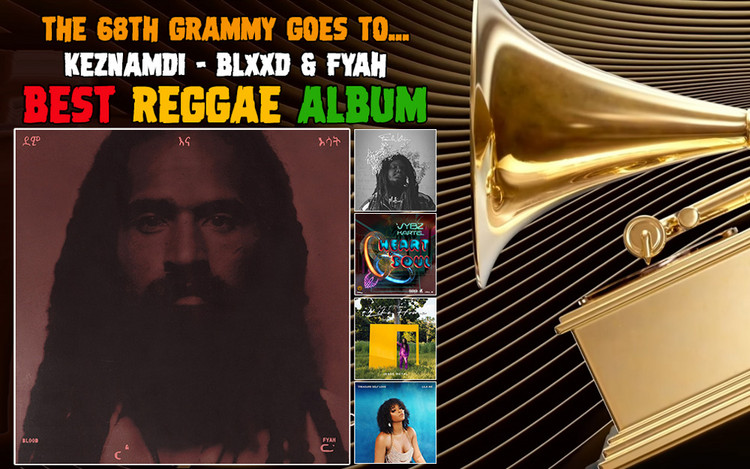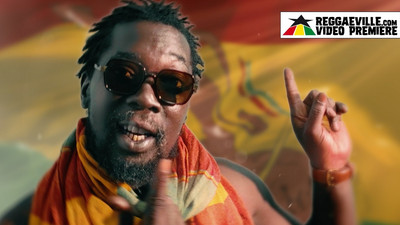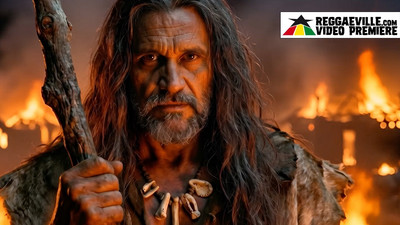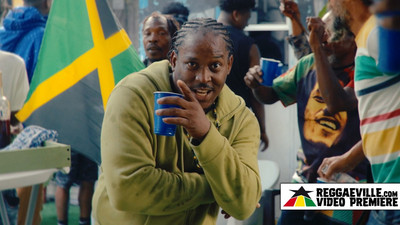Cimarons ADD
Cimarons Interview Part III - Breakdown Then Return With A Documentary & New Album
07/15/2025 by Angus Taylor
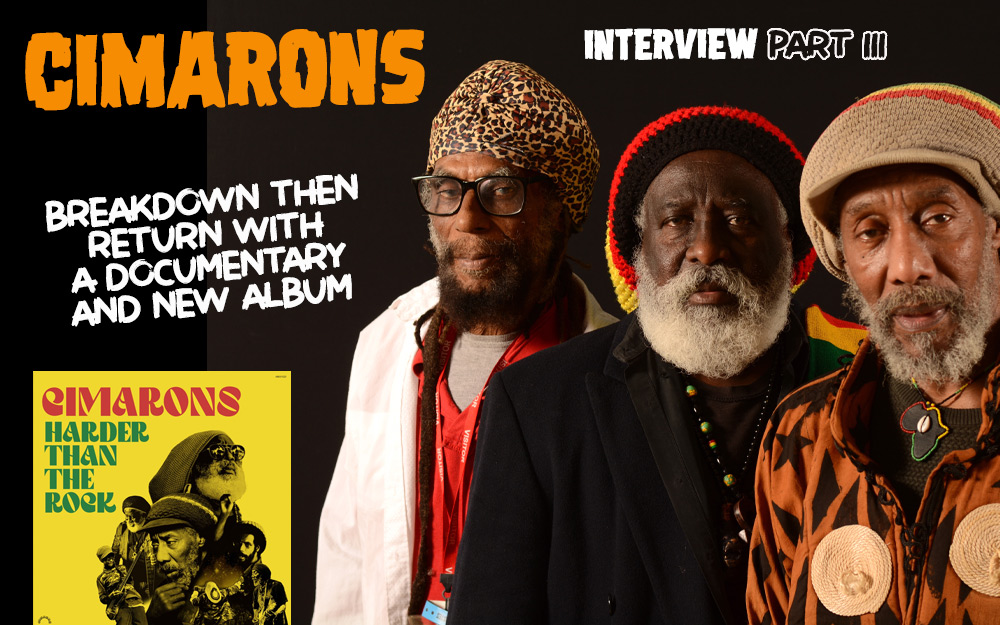
In the final part of our three chapter interview [Read PART I & PART II here] with Locksley Gichie and Michael Arkk of Cimarons, they talk about working with Paul McCartney, how the group ceased to function in the 1980s, how they made documentary Harder Than The Rock, and their new follow up album produced by Roberto Sanchez. They look back on the history behind classic 70s songs such as Ship Ahoy and Morning Sun, which they revisit on the album. They also reveal that they recorded an unreleased album for producer and bassist Philip Chen, how they played a key role in Tapper Zukie’s first album.
We mentioned how the timing of your version of Dim The Light wasn’t right. A similar situation is the album Reggaebility in 1981 you did with Paul McCartney. Reggae has such a rich history of cover versions. Back in the 60s and early 70s probably about 70% of what was coming out of Jamaica was cover versions.
Locksley Gichie: Well, when Paul McCartney and Linda asked us to do the album, it was Linda who was a reggae lover. They wanted us to do an album and we saw it was a big chance for us to do our own stuff. But he didn't want to know. He came to the studio with this big catalogue of all the songs he'd done. Because he got his Paul McCartney publishing. And he came with this big Bible of a thousand songs that he owns the copyright. And he says “It's up to you guys. Just choose the ones you want”.
If it was up to Linda it would be all deejay. Because she loved Winston's rapping! “Winston, Winston do some rapping!” because if you've heard, Winston did quite a few rappings. And that's what she wanted. (Sings toasting) She wanted just rapping. And there was no roots in that catalogue. There was not one song that we could say “That's a roots”. The closest we got to roots was Mull Of Kintyre. Because what I can tell you about the history in early days with Kenneth The Dubh was a king in Scotland. I figured out he was living in Mull Of Kintyre? So we did it in a chant! (laughs) But we did that album and I don't know what it did. Because as the years went by I found out that it was a tax evasion thing.
Like a tax loophole.
Locksley Gichie: Yeah, it's coming to the end of the year. It's time to throw money everywhere. And that was one of those projects. So when he had a couple of million or a couple of thousand left he did Give My Regards To Broad Street. A movie about him where about ten people watched it! (laughs) It's funny because I didn't like the album. Because it was different vibes.
The lovers rock thing was quite big at the time. Which was cover versions. It seemed like a good idea.
Locksley Gichie: Yeah, but it backfired. And it wasn't designed to hit, you know? Because he could have given it to a big record company and he didn't. He gave it to a company that does publishing. Pickwick. They are publishing and they published books. So it wasn't designed to be a hit. He could have gone to Island or he could have gone to one of the big companies but he didn't. He found a company that didn't make records, they sold books. So we don't know how many sold. Or who bought it. We don't know nothing about that one. And we could have got more money from them too. But we made a bad deal. We could have made some good money. We could have got a couple of thousand as well. But we made a bad deal. In those days £100 seemed like a lot of money. And you ask for £500, like you're rich.
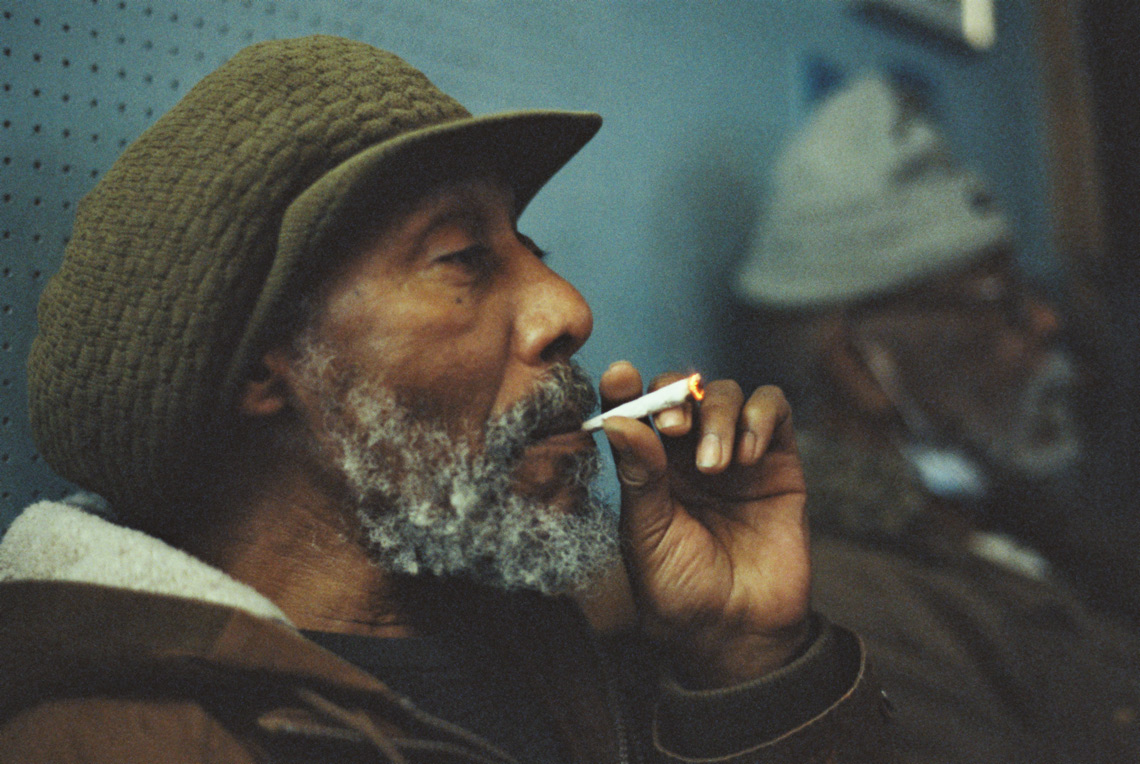
You talk in the documentary about how things kind of got slow. Winston went solo and you guys had to get jobs to survive. Did the way the music in Jamaica turned more digital did that have an effect? Was there less call for session musicians and live tours?
Locksley Gichie: Yeah, but by that time the band wasn't functioning.
By the time the Sleng Teng came in things had already got a bit slow.
Locksley Gichie: Yeah, Frank was living in Jamaica, Levy went to America, and I was freelance. I was like a freelance and that's when things started to slow down. Because the work stopped coming in because everybody is calling just a keyboard player alone! The keyboard player goes in and does everything.
The keyboard player and maybe a drummer programming the drums.
Locksley Gichie: So I was getting less calls, man. And I was just getting one or two live gigs. But even then they were bringing their own musicians in as well. From Jamaica for some reason. So it was a very dark spell at that time. I had to go and find a nine to five! (laughs)
But in 2014 a Blue Plaque was put up at Tavistock Hall to commemorate the forming of the first reggae band in London. I was there with Delroy Washington and Leslie Palmer when it was put up. I wrote an article about it.
Locksley Gichie: It was Delroy Washington, you know? Because Delroy has always been around Cimarons from day one. Because Delroy was living with his aunt and they weren't getting on. He had problems with the aunt and he came to HQ. He was living in HQ. (laughs) He was there all the time over the years, until he started to play the guitar and he used to move around with the Pioneers. He was very close with Jackie and Luddy and they used to move around. Until he got involved with Aswad. And then he got the deal with Virgin.
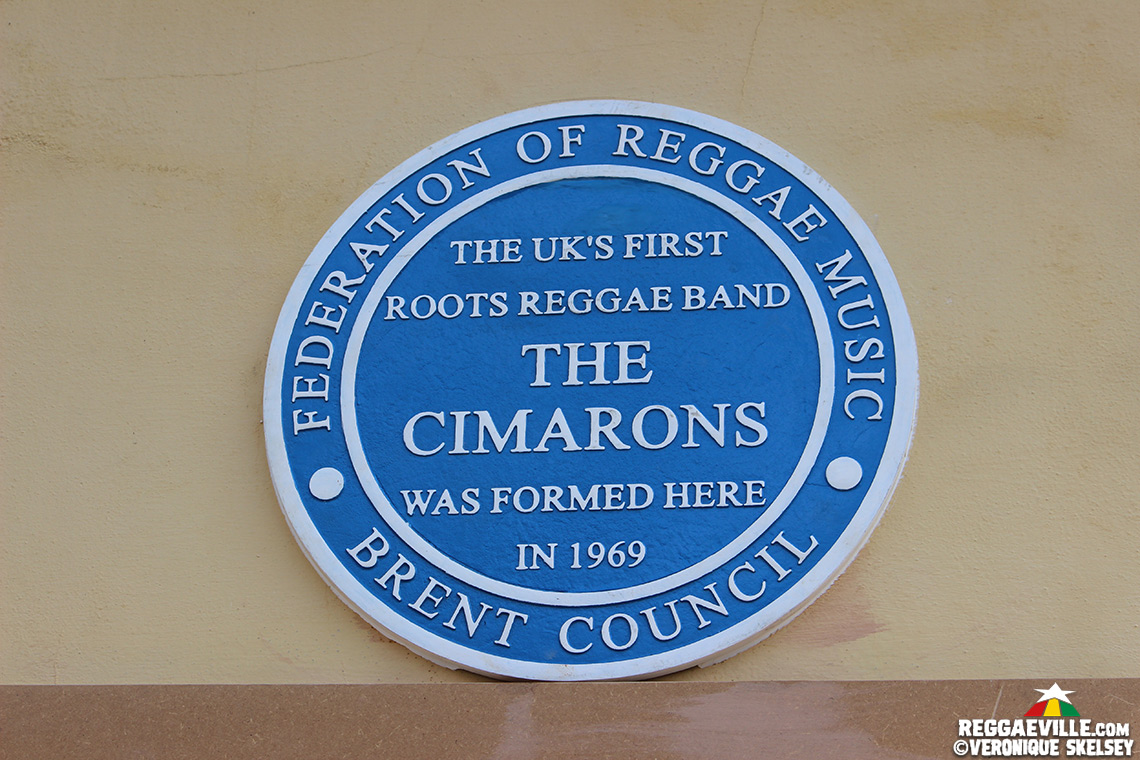
Yeah, and he used Al Anderson to do Concrete Jungle style rock guitar on the song Rasta.
Locksley Gichie: Laughs. Yeah yeah. I didn't work too tough for him. But he came up with the idea. He did Bob Marley [plaque] first.
I think he did Dennis Brown first with Nubian Jak at Dennis Brown's brother's house in Harlseden.
Locksley Gichie: Yeah. And then Delroy came up with the idea “We should do Bob, you know?” and then he said “Cimarons, you guys deserve a plaque as well, you know?” We said “No, Delroy, man”. And he said "You guys are the first reggae band in England”. I didn't check it that way, you know? I said “That's true, that's true. When we started playing reggae in England there was no one else around". And he came up with the idea saying “Cimarons were the first Roots Reggae band in England”. So it all came from Delroy. God bless his soul. He did a very good thing. Because nobody else would have done that. He was going to do Gregory Isaacs as well but he didn't do Gregory. I think he had a few more lined up, you know? He probably has one somewhere for Junior English. It was made up but Junior was a bit old-fashioned. His argument was “Plaques are for dead people”. (laughs)
Don't put it up yet! Put it up later!
Locksley Gichie: I said “No man, times have changed, man. Times have changed. Don't wait until you die. Give you a plaque when you're alive". But Junior English didn't want to know. He said “Plaques are for dead people”.
Congratulations on your new album. How did you decide to make a new album after such a long break?
Locksley Gichie: You know, it's a long journey. We started about four years ago.
Michael Arkk: Before the pandemic.
Locksley Gichie: On and off. Because the finance wasn't too good. So basically we had to start financing ourselves. So gradually as time went by we were doing this until Michal, our manager came up with a brilliant idea. Because he knew this bredda…

Roberto Sanchez.
Locksley Gichie: Yes, he reached out to him and it was a very good idea.
Michael Arkk: It was in November, late last year. We went to Spain at Santander. It took us about a week to record the album. Because as Locksley said we were at Kevin's West 11 so we did some preliminary works there. And so when we went to Santander at Roberto now, we were kind of well ready. So it didn't take too much.
He's a very good musician, producer and engineer. He studies the sound and he did a very nice production.
Locksley Gichie: Very, very talented. He knows the sound. And his arrangement.
Michael Arkk: The horns.
Locksley Gichie: He did the arrangement on the brass section. Brilliant.
What inspired you to do another album after so long? Because the group went on hiatus for a while.
Locksley Gichie: It just felt right, you know? Because Michael Arkk joined us from a friend of ours, a keyboard player, Charles. He joined the group and we had to give him an interview.
Michael Arkk: (laughs) Yeah, an interview!
Locksley Gichie: And a friend of our daughter, she was working for the council and she came up with this No Bass Like Home. And that was the first time Michael Arkk worked with us. No Bass Like Home.
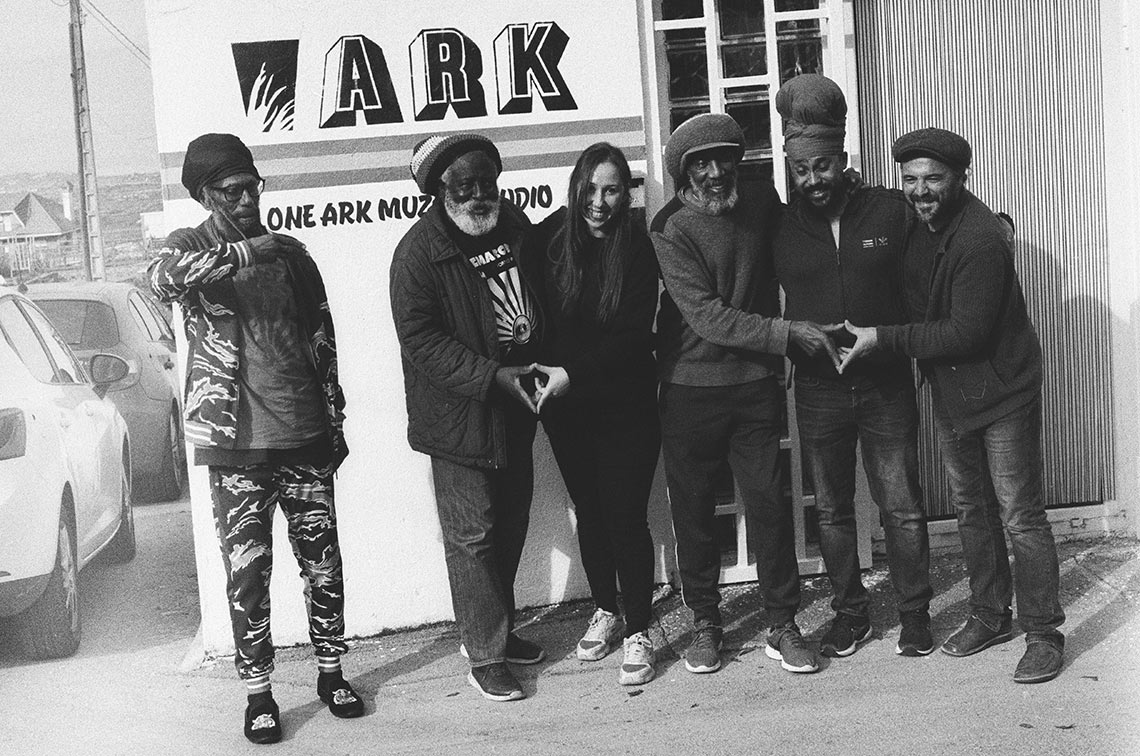
This was an online Festival during lockdown celebrating the culture of the borough of Brent.
Locksley Gichie: They wanted Cimarons to be part of it. And we did three tracks and it's amazing because that's the last time Maurice played with us. And it was so good because we took him back out of retirement. (laughs) And he was a bit rusty but he did great. So it started off with No Bass Like Home and it was a good launch for us and Michael Arkk. Because we didn't have a vocalist. We asked Winston first if he wanted to do it, but he couldn't. I know he's a bit upset now he didn't! So that's where it started from and Michael Arkk joined the group from then on and we did a few gigs.
Michael Arkk: We started preparing for the show we did at Hootananny. And that was the first live show because No Bass Like Home, we didn't have an audience because the pandemic was around, so this was kind of a virtual. So from there we started preparing and preparing because it was a long time that Cimarons hadn't been on stage as full band. So we took the time and it went well.
You can see in the documentary that Winston took the mic on stage and joined you for the song Harder Than The Rock. That must have been quite a moment.
Michael Arkk: That was a moment. I think we had a break and we were in between songs and somebody said “Winston is in the audience”. So I thought he was closer to the back. So I stopped and said “I heard that Winston is here”. (laughs) I didn't know it was him just there. And I called him on stage and he came up. And you know the rest is history. He came on, I handed him the mic and he just went into it.
Totally unplanned.
Both: Totally unplanned.
Michael Arkk: That was such a magical moment.
And then when he left the stage you held a really long note.
Michael Arkk: Yes! We never rehearse that.
(laughter)
Michael Arkk: It felt so… it felt like this is the thing that should be done. So I tried it and it seemed to work!
How did the documentary get made?
Locksley Gichie: That was all at the same time, you know? It was all at the same time we were doing No Bass Like Home. The cameraman was called Mark [Warmington].
Michael Arkk: The same lady that organised the show, I think she sent him to you.
Locksley Gichie: Yeah, the same daughter who did No Bass Like Home. Mark was enquiring about a reggae band for some reason. He was just enquiring if there was anything he could do to get a reggae band. We met down at Tavistock Road where the blue plaque is. We were sitting in the car park and he says to me that he is a camera man and he is interested in doing a documentary with a reggae band. And because the plaque was there he chose us, as the foundation. And when I told him the story of Cimarons, he couldn't believe it. He didn't know it was a band in England that really did so much and nobody give us the credit. And Mark was knocked out. He couldn't believe it, you know? We met several times. And this was just around the time of the covid.
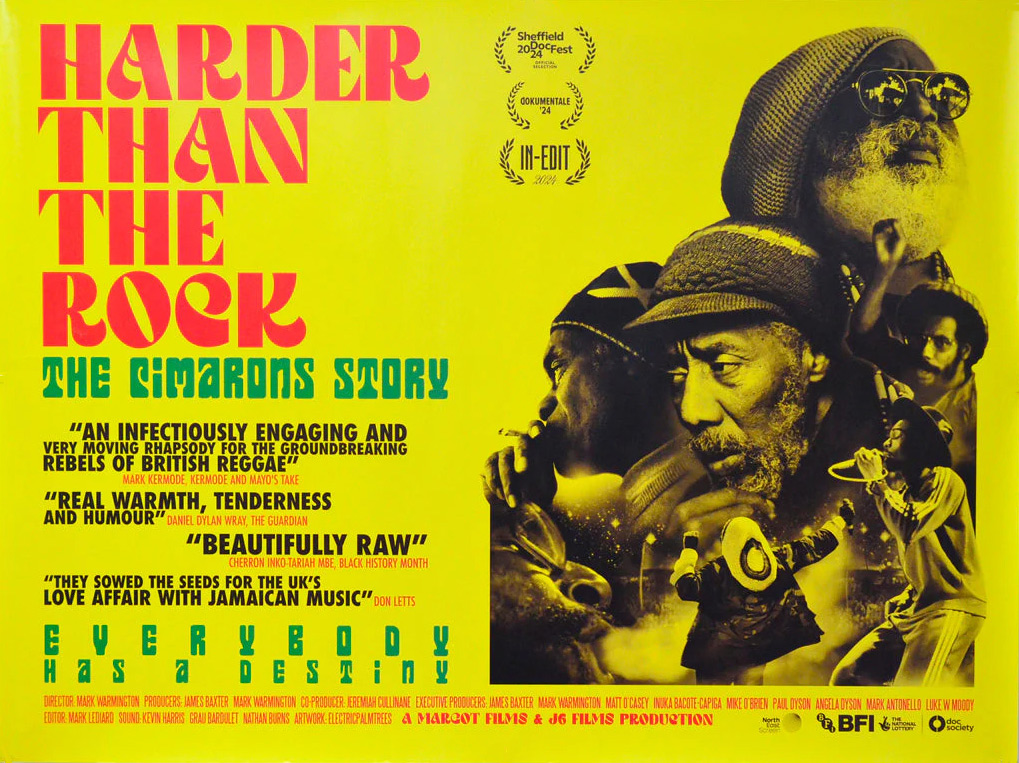
Michael Arkk: Covid came in.
Locksley Gichie: Then we started doing bits and pieces going around the area. And we took a couple of shots here and a couple of shots there. And it slowly came together but it took four years.
So the album and the documentary were happening at the same time.
Locksley Gichie: At the same time. It's amazing everything just came together. And Cimarons tour is like that. It just happened. We didn't have to do much hunting. Everyone was drawn to us. Because even our manager was just drawn to us.
It's obviously very moving in the documentary that Dego wasn't able to play on your comeback tour but he contributed to the album.
Locksley Gichie: Yeah, because we knew Dego from 1970. From when Dego came to London with Dave and Ansel Collins. So we knew him from that time because he was living around the corner from us in West Kilburn. So he spent more time in our house because our house was like HQ! Laughs everybody used to come to HQ! You name it, Pioneers, Pat Kelly, Ken Boothe, everybody used to come to HQ. Because Cimarons was the band. So that's why Dego was coming around. We became really good friends over the years. Gradually until his passing. It was the happiest time of his life. He was really happy because he was looking forward so much to getting back on stage and performing. So it kept him going for a long time. He fought hard. But there were so many things happening in his body that he couldn't make it.
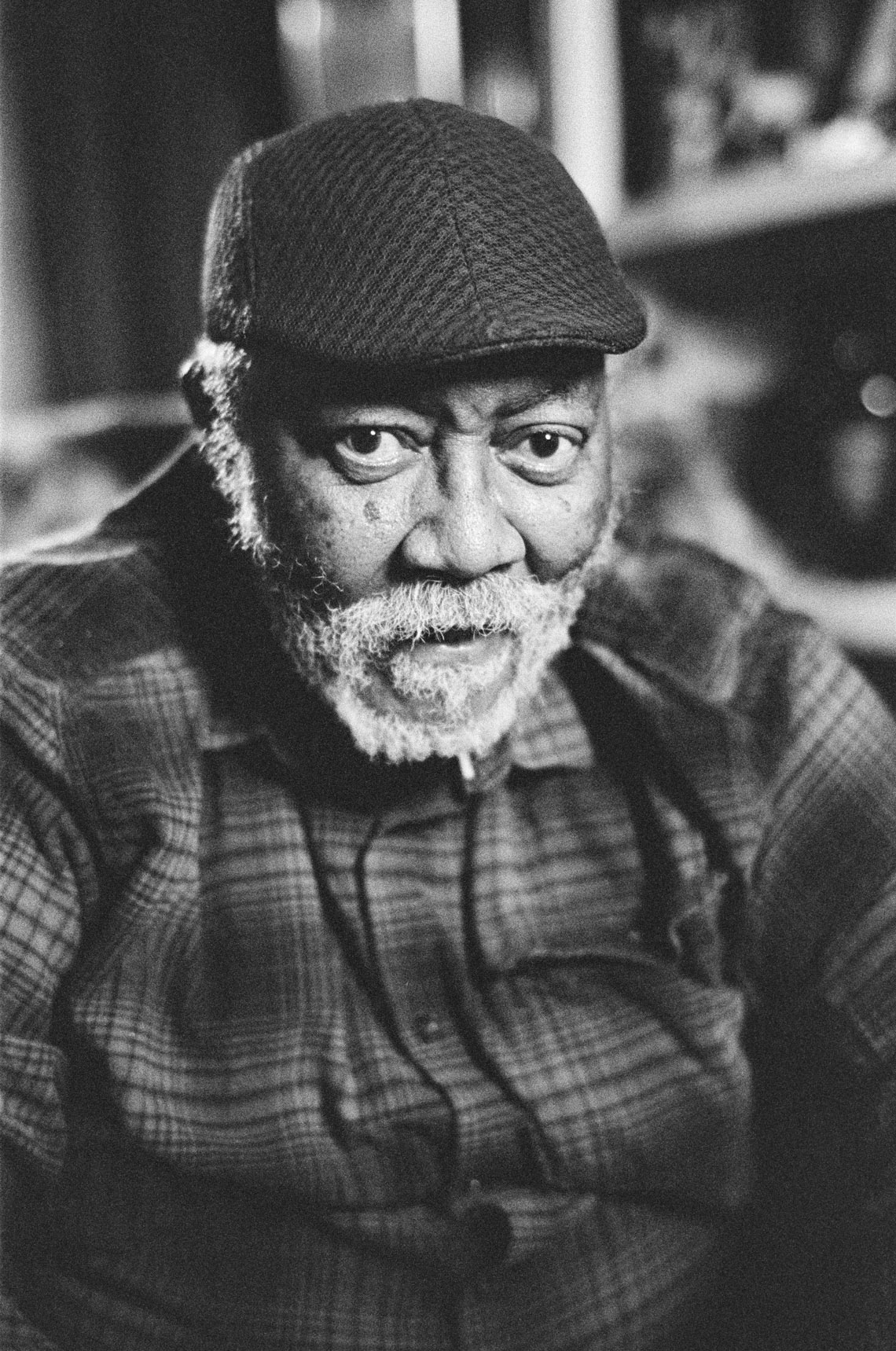
Michael Arkk: You could see his enthusiasm on No Bass Like Home. And when we started filming the documentary a song that he really put a lot into was Ethiopian Romance. But life is what it is. He was so looking forward to being with us at the Hootenanny and coming out to work but it didn't happen.
When you watch that in the documentary and then the very end in the credits it's dedicated to his memory, it's very powerful. And obviously Maurice passing away as well.
Locksley Gichie: That hurts man. Every time I see the documentary, it brings tears to my eyes. Because Maurice was so close to us.
Michael Arkk: I don't remember which song it was at Kevin. But he and I were right by the door of the studio because I'd just come out of the vocal booth and he had done the drumming earlier. So we were now listening to a rough mix, and I didn't know that was the last time I would see him.
Let's talk about some of the songs on the album. You redid some of your classic tunes. Ship Took Us Away is on the same rhythm as your cover of the O'Jays Ship Ahoy. But you did this version before on your Live At The Roundhouse album. So tell me about the history of the song and that version.
Locksley Gichie: Ship Ahoy. O'Jays. What year was it?
About ’73? It came out on the Ashanti label in 1974.
Locksley Gichie: Yeah about ’73. What happened is we were with Dandy Livingstone. We were doing some backing tracks for Dandy Livingstone for an album called Poor People or something like that. And he wanted to do Ship Ahoy. So we went to Chalk Farm Studio and we did Ship Ahoy for Dandy. But it sounded so good that when we started doing our first album In Time we went to Dandy and I said “Dandy, we'd like to have that track” and he said “Oh, you can have it, man!” (Laughs) So that's how Ship Ahoy came along.
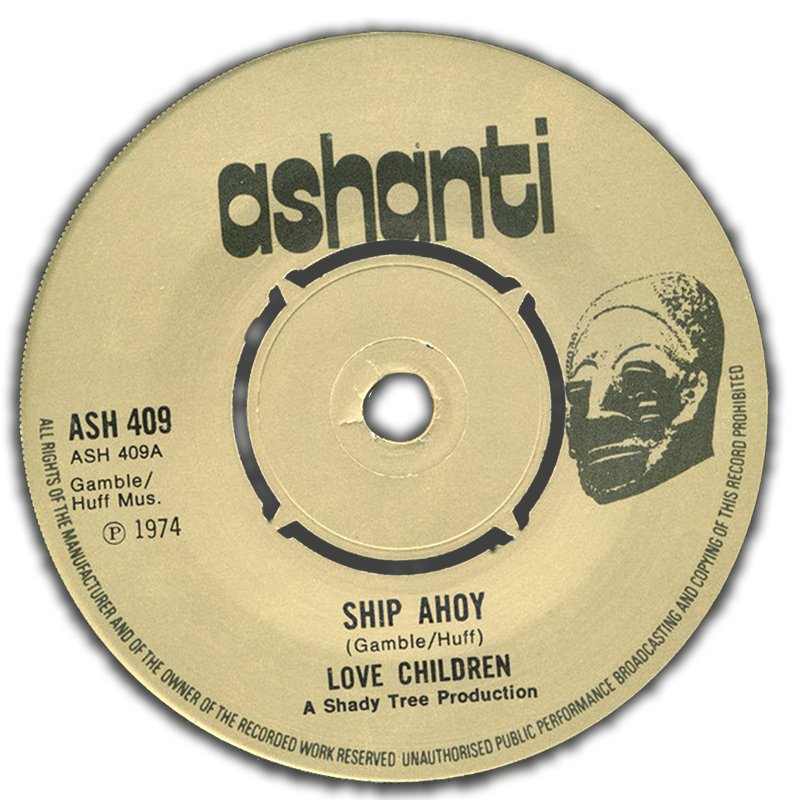
On the Ashanti label, it was credited to Love Children not Cimarons. How come that happened?
Locksley Gichie: That was the name Dandy used. So he gave us the backing track and we did it over. Winston had just joined. And we finished it off on the In Time album. And then we started doing it on our live shows. Because at the time we were doing a lot of tours. There wasn't much happening in England. So we were doing a lot of tours around Europe. Paris, France, Holland, Denmark. When we went to Cork we found that Ship Ahoy had become an anthem. Every time we did the Ship Ahoy, the crowd went so crazy! (Laughs) So it ended up on the live album At The Roundhouse.
But how did it become Ship Took Us Away?
Locksley Gichie: It's amazing. What happened is, because that song holds the crowd so much, we extended it. We were extending, messing around and it came naturally. We'd stand on stage and we'd say (both sing) “Ship took us away” because we'd said Ship Ahoy about four times already and the crowd didn't want us to stop. So we just adlibbed and Ship Took Us Away was actually written live.
But then on this new album you decided to do that specific version?
Locksley Gichie: Yes, because it's more original. It's our lyrics. Instead of doing Ship Ahoy which we have done so many cuts already. The O'Jays must have made a million already! (laughs)
The publishing!
Locksley Gichie: So we just decided to do our Ship Took Us Away so at least we can get a part of the royalties you know?
And it says in the credits to the album that Franklyn wrote it.
Locksley Gichie: in a sense but it was a group effort. But it's Franklyn's idea. Well, it's a song that Franklyn just got involved in. He shaped it. In a way it's a group effort but Franklyn got the credit!
Michael Arkk: This last version that we did in Spain, part of it was actually written in the studio as well. Because he suggested to me the bit about “They took us away all over the Caribbean and America”. That bit that was actually ad libbed in there while we were doing it! (laughs) so it's an interesting outlook on that song.
That song's been on a journey since 1973.
Locksley Gichie: Yeah, definitely been on a journey.
I really like the flute playing on the new version.
Locksley Gichie: Yeah, really nice. And the horn section that Roberto added, he's been working about 30 years with those guys. He said when he started his first band, just those young guys used to play, so they gel. It didn't take no time at all. He just went parp parp parp and they pick up.
So the album is a mix of new songs and older songs. Tell me about the new songs that you've brought to the album.
Michael Arkk: That's right. One of the new songs was Oh Jah. Locksley and I wrote that somewhere in Hackney. Two years ago. And there's another new one, Give Love, which I wrote a few years ago as well. And Green Gold And Red, that is one that Locksley wrote and when I heard it I thought “This is good” (laughs). And before Dego passed he sent me the lyrics to…
I Will Follow You.
Michael Arkk: I Will Follow You. When I sang it first time, he liked it. So I knew that was in the bag! And then The Fool Said, he didn't finish writing that one. So I finished it. Because he got iller and iller so those are the brand new ones that we got in.
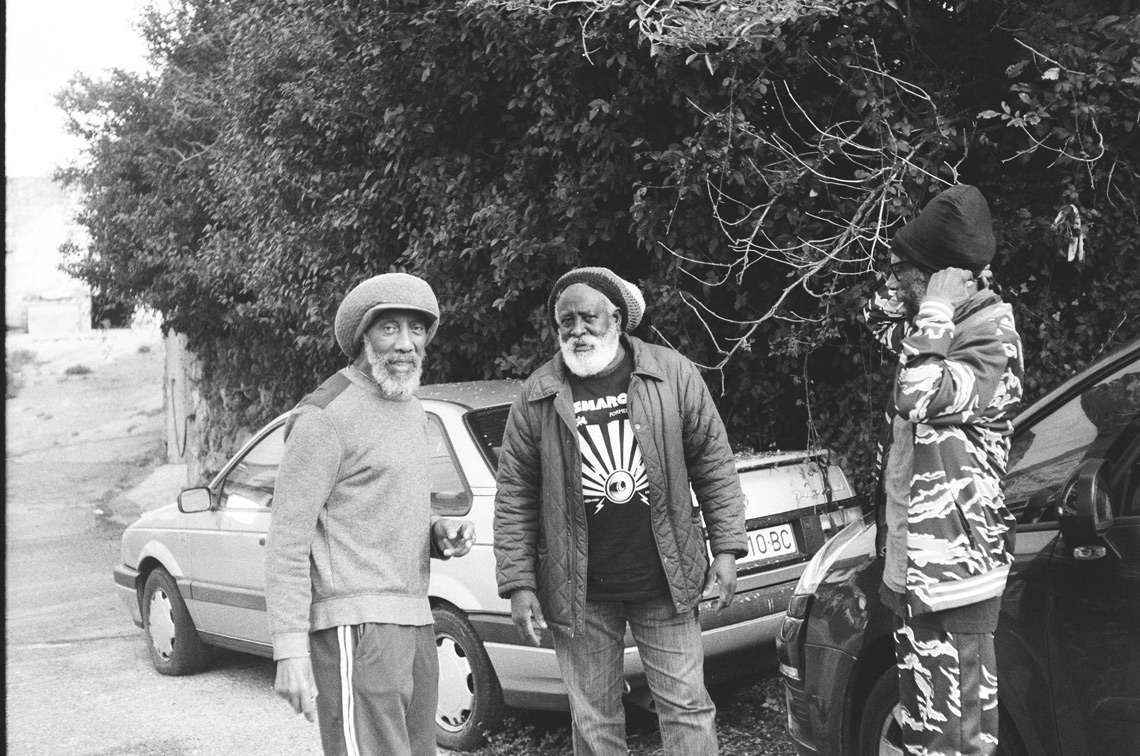
So the songs that you two wrote, how did you get inspiration for them?
Locksley Gichie: Well it's funny, Oh Jah was one of Michael's friends.
Michael Arkk: Yes, you've probably heard of him because he used to play bass and riddim for Culture before he passed. His name is Huey Izachaar. He has a studio somewhere off Kingsland Road, so Locksley and I had some easy time, so we went down there and we wrote it in his studio in his front room there. Locksley took his guitar and the lyrics started to flow.
Locksley Gichie: So, the drum tracks were there already. And we just chose one we liked and went on that drum track and that was it. It just came together. I had an idea for the opening line the main part of it (sings) “Oh Jah” the chorus. (they sing together) “Oh Jah, put our trust in you, guide and protect us and see us through”. And as it goes along…
Michael Arkk: We add lyrics from there.
You also redid Morning Sun, your 1970 collaboration with Al Barry from the Aces. So can you tell me the history of that song and why you decided to do it again?
Locksley Gichie: It's funny, Morning Sun, because the first album we did wasn't In Time. We did an album before In Time. But there wasn't a name for it. Because if you remember Philip Chen, the bass player, a brilliant musician. I think he had something to do with Graeme Goodall in Putney. And he wanted to do an album. They didn't have any cash. He just said “Cimarons, if you just come in and do an album, you do my album and you have an album for yourself". Couldn't turn it down. So funnily enough it was about the same time that we just came back from Africa. We had been back a couple of months from Africa.
And we didn't have a vocalist at the time. So at the same time we were recording the album, I did most of the singing. But I did about four or five original songs at that time. I can't remember the lyrics or the song but we were playing the song in the studio and Al Barry walked in. Coming now from Desmond Dekker and the Aces, Al Barry. So he said “Play that track again”. So we started playing the track and he just came up with (sings refrain) “La la la dee la la la da la la da”. And then after the lyrics came in “Way out in the Morning Sun” and that was it. And it wasn't until a couple of months after that the record came out on 45. Al Barry and the Cimarons. Which was good.
That they gave you the credit.
Locksley Gichie: Yeah (laughs) And that song became so popular.
Even if you drop that tune now, even people who don't know reggae that well, they love it.
Locksley Gichie: Yeah, just does something to the audience. When we went out to the internet it must have had over a million plus [views]. So it's a song that was always at the back of mind so whenever we do a live show we've got to do it. And we ended up recording it again. Because Michael adds something extra to it. With his voice and thing.
Michael Arkk: We released it on YouTube and it's climbing at a good pace.
On the credits for the album that I was sent, it has Carl Levy as co-writer of that song and also on Reggae Rhapsody and Mother Earth. So he played a big role.
Locksley Gichie: I don't know what happened there but he got part of the credit! (laughs) Some things you can't remember. But all I knew was that song really was one of my songs. I can't remember the lyrics I was doing on it but the original rhythm was my rhythm.
Michael Arkk: You were the originator.
Locksley Gichie: It's like when we did some tracks for Tapper Zukie, his first album. We went to his studio for the day. Same thing, we were at his studio doing a couple of tracks. Zukie came in and next he came with Man Ah Warrior and I'm thinking “That's my song!” (laughs)
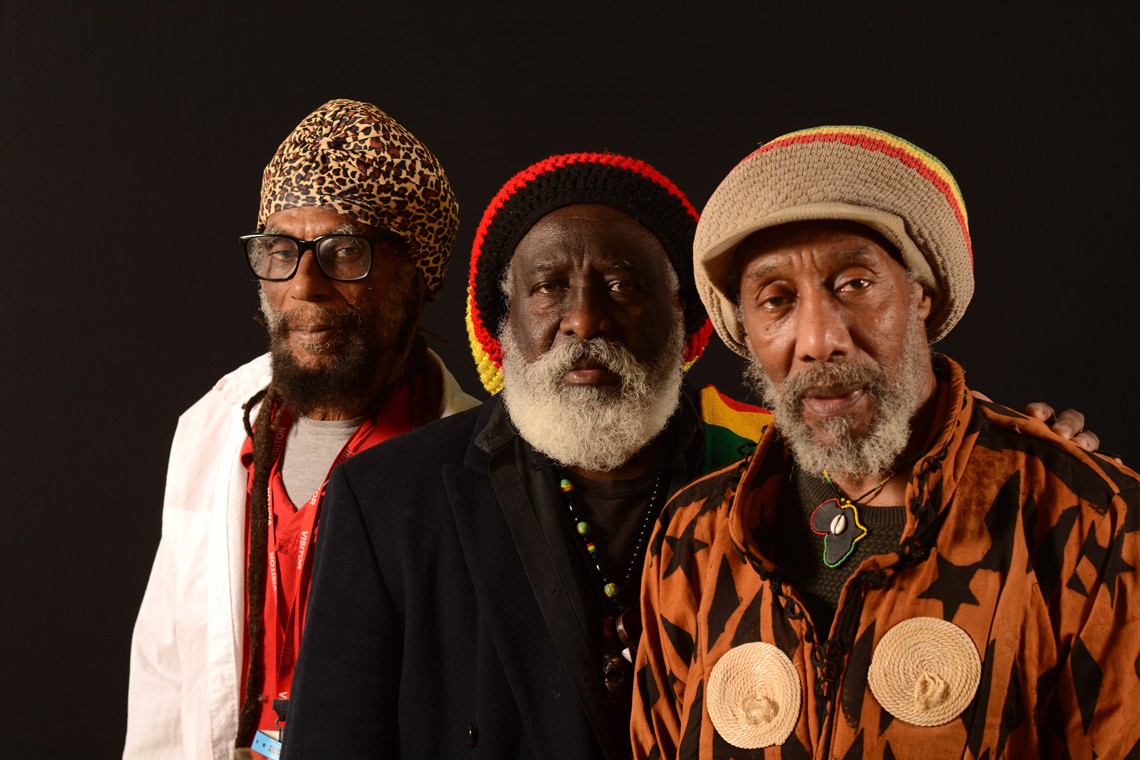
He's a bit of a tough customer so it wasn't so easy to go tell him!
(laughter)
Michael Arkk: I've never met him but I've heard about him!
He was Bunny Lee's bodyguard.
Michael Arkk: So, a tough man then!
Locksley Gichie: We ended up doing quite a few tracks for him. On Man A Warrior with no recognition. Not one mention. That's reggae music for you in the early days.
You also cover a Studio One classic on the album Eternal Peace by Johnny Osbourne.
Locksley Gichie: I used to do a disc jockey show. On a pirate station. RJR. I used to do Friday nights. And that song, the Johnny Osbourne version, the lyrics they sound now. It's now. It's everything that's happening. “We need Eternal Peace. Tell it to the people searching for Eternal Peace”. It just suits the times. So I said “Michael Arkk, we've got to do that over”. But we were listening to the Johnny Osbourne version and it was good but through Michael Arkk we added a bit extra and changed the whole rhythm section around. And made it our own. So musically it is our own thing.
And Makeda Moore added some guest vocals?
Michael Arkk: Yeah, she took a part of a verse there and she just nailed it so well that she gave it a new feeling and created an atmosphere that I wanted to stop and cheer! (laughs)
Locksley Gichie: She's brilliant, man. Brilliant singer.
Michael Arkk: Brilliant artist, great singer.
And what about remaking Mother Earth from your 1978 album Maka?
Locksley Gichie: Again it suits the times. A lot of songs that Cimarons did were timeless. And Mother Earth is one of them. Mother Earth is for everyone.
And she's under threat.
Locksley Gichie: And she's under threat. And we've got to keep reminding people. That Mother Earth is very important. So it's a very special song that suits the times. Because we didn't want to drift too far away from the original Cimarons. We're really a roots group. The first reggae roots group in England.
And also the decision to remake Reggae Rhapsody from your 1976 album On The Rock?
Locksley Gichie: Again it's the vibes. “Reggae again and when it's time you're having a good time. You feel fine” So again it suits the times. And Cimarons are returning now live and direct so that song suits it so much.
Michael Arkk, can you tell me about your history and how you joined the group?
Michael Arkk: Michael Arkk: I came into England in 1987. To a place called Walsall. I was invited by one Reverend Dr McGregor and I came singing gospel. He and I met at a convention in Jamaica. At a place called May Pen.
Time went by and I became a woodcutter. So I went down to that area to collect some money but the people I sold the wood to haven't paid me one second of attention. If they had come and said anything to me I would never have met the Cimarons. So when I decided “Today this is not going to happen", I decided to go up to that church where I had sung some years before. I had a friend there. She is a brilliant singer and I wanted to borrow a couple of dollars from her to pay my fare back to Manchester. That's Manchester, Jamaica! And she said “go round to the church there is a letter there for you for nearly a month now".
A lady gave me the letter and it was an invitation to come to England. I decided “I'm going back home to call Dr McGregor”. I decided to walk down to the police station which was over a mile away. I forgot how hungry I was, how tired I was. I was so excited about this letter. And the miraculous thing is, because then we didn't have mobile phones and we were too poor to have a phone in the house, the little money that my mum gave to me, if it rings it would take your money anyway. It made three rings and the exact person that I wanted to speak to answered. By the time I told him “I just got the letter sir can I still come?”, he said “Yes”. (Makes noise of phone hanging up) It finished. (laughs).
I came to England and kept on singing gospel but our community got saturated very quickly. It was only certain church groups that accepted the brand of Gospel that we did. It was the Old Testament roots reggae brand of gospel from that section of the Bible. I think that's why I fitted in with Cimarons because I had a roots connection, even though I was into the gospel side.
It's a long story but that is how I came into being introduced because Charles we worked together before, and he knew Locksley and Cimarons needed a singer. So I'm very grateful to him for thinking of me so well. To have introduced me to this band that was the band of all bands. So I feel as if the journey from where I didn't get the money led to this point. That church gospel and now into roots reggae with the Cimarons.
Which gospel or reggae singers influenced you when you were younger?
Michael Arkk: We couldn't listen to reggae in our house because my dad was a minister. But when you go past the shops and hear the jukeboxes play…
Luciano had the same situation.
Michael Arkk: (laughs) I haven't met him but he is from the adjacent community to mine! Anyway, Toots, Jimmy Cliff, later on Bob Marley, Sam Cooke, the usual names… because that's what came via radio into Jamaica. So I found it easy to mimic them. Anything I heard from Sam or Toots, within hours I can sing exactly what I hear. So although we couldn't dance or listen to it in the house, when you go down the road you could have a little dance and a little listen! (laughs) So we had the whole of the earlier singers, the Mahalia Jacksons, the Aretha Franklins, Five Blind Boys From Alabama. All of those old gospel songs and sounds. It helps to bring the soul aspect of my thing.
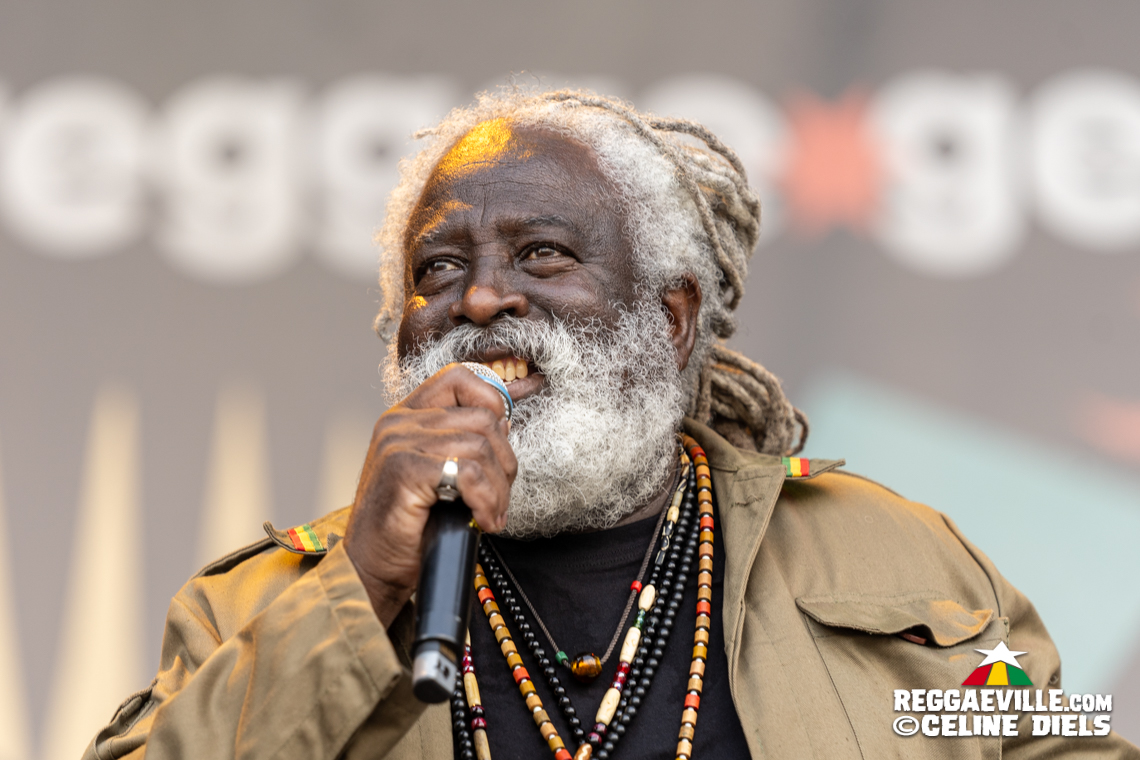
What are your plans now you've finished the album?
Locksley Gichie: Well, fingers crossed you know? Well, as you know we're not getting much younger (laughs) so we're trying to do as much touring as we can do now. Live touring. And of course we want to do a follow-up album as well. So this is just the start. But after next year we will be doing a follow-up album.
Michael Arkk: I think a national tour or a few international dates will be very good for us. To open other markets to become aware of the Cimarons. And the history of this band. Because no other band on Earth has the history of the Cimarons. One person in the documentary said without Cimarons possibly there would be no reggae in Europe. Because when Bob came he came to Cimarons. Toots, Jimmy Cliff, Ken Boothe, everybody came to Cimarons.
Locksley Gichie: Pat Kelly.
Michael Arkk: Pat Kelly and all the early guys came to Cimarons. That needs to be made known to the masses. That it is Cimarons that took reggae into Europe and into Africa and Asia. So it would be good to retrace these steps. And we talk about the documentary but there is a film in my opinion! We did mention having somebody like Spike Lee take an interest but it's how to get it to him? So we need to perform somewhere in America and invite him. Or some other person here like Guy Richie, maybe? Somebody who understands the vibes. And can put it together very well. It would be expensive but I think it would be commercially viable.
Locksley Gichie: It would make a good movie.
So when you do your next album will it be bringing back old songs, doing new songs or a mix?
Locksley Gichie: Well, we haven't thought about it yet but it will be a lot of new songs still. We’ll probably bring one or two of the older ones. We might even do We Are Not The Same! (They harmonise on the song) Big tune! We will probably do that one again. We did rehearse it, you know?
Before we finish, Locksley can you say something about Harlesden through the years? It became such a big music place. When I interviewed IJahman he said there wasn't much going on when he came over. He came over at a similar time to you. But it sounded from what you said like there was a lot of music going on there when you arrived. And then it just got bigger and bigger.
Locksley Gichie: Yeah it did! With Harlesden you got Matumbi, Aswad, Brinsley used to come to HQ. We didn't know him then. He was so inspired. Because he was sitting there when we were doing the In Time album. And we did a couple of tracks and he said “You guys write all the songs?” And I said yeah “We write all the songs, you know?” And then Brinsley went missing for about a couple of months. And Brinsley came back with songs that he wrote. And in Harlesden you had about four record shops. In the early days the first Club, 31. And then 31 became the Apollo. And it used to draw people from all over London. In those days there were a lot of girls coming to England who wanted to be nurses. And they all used to be there. They would come from Hammersmith. It was a good place to be, the Apollo Club! Oh man, a lot of people got married there! And the vibes was always there. You got Vivian Jones, Junior English and the list goes on.
Right up to people Like Chukki Starr and Gappy Ranks today.
Locksley Gichie: Yeah, still carrying it.
Michael Arkk: Did Vincent Nap come from there as well?
Locksley Gichie: Yeah, Vincent Nap was from the area. So all the artists and musicians started there in Harlesden. It was the place to be man. And Cimarons influence the whole lot of them!
Thank you very much for your time.
Locksley Gichie: a pleasure.
Michael Arkk: you're very welcome. I'm Cimarons and I'm still learning!




